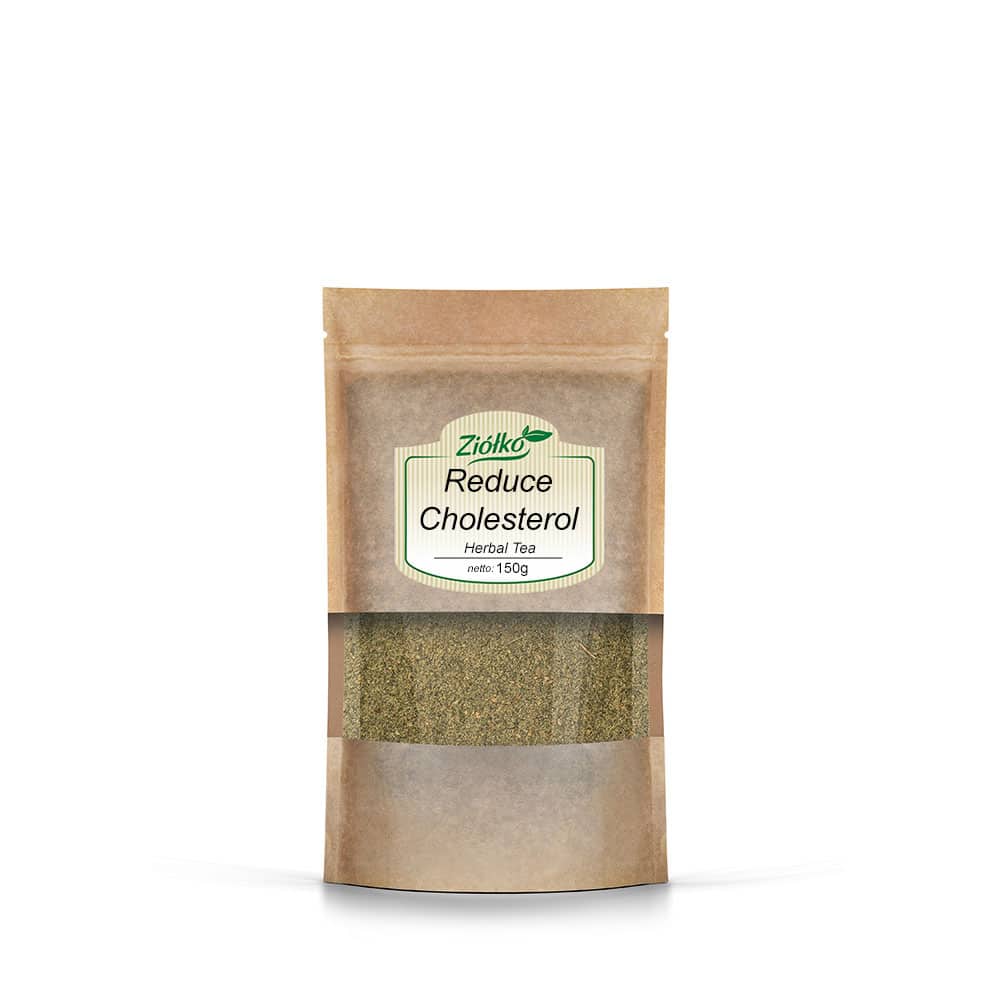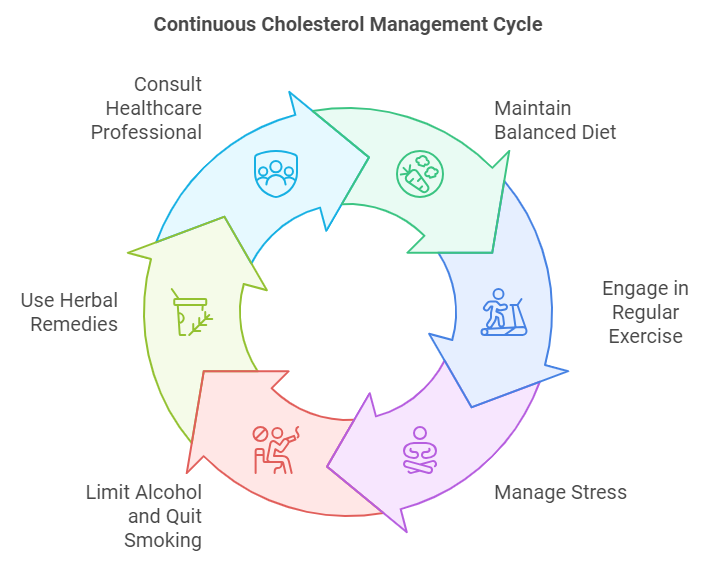Introduction: The Natural Approach to Cholesterol Management
As we step into 2024, the quest for natural ways to manage cholesterol levels continues to gain momentum. With an increasing number of people seeking alternatives to conventional medication, herbs have emerged as a promising solution. This comprehensive guide explores the most effective herbs for lowering cholesterol naturally, backed by the latest scientific research and traditional wisdom.
Understanding Cholesterol: The Good, The Bad, and The Natural
Before diving into herbal remedies, it’s crucial to understand what cholesterol is and why maintaining healthy levels is important. Cholesterol, a waxy substance found in your blood, is essential for building cells. However, too much can lead to serious health issues.
Types of Cholesterol:
- LDL (Low-Density Lipoprotein): Often called “bad” cholesterol
- HDL (High-Density Lipoprotein): Known as “good” cholesterol
- Triglycerides: A type of fat in the blood
High levels of LDL cholesterol can lead to plaque buildup in arteries, increasing the risk of heart disease and stroke. This is where natural remedies, particularly herbs, come into play.
Top Herbs for Lowering Cholesterol in 2024
1. Garlic: The Heart-Healthy Powerhouse
Garlic has been used for centuries for its medicinal properties. Recent studies in 2024 have further confirmed its cholesterol-lowering effects.
- Contains allicin, a compound known to lower cholesterol
- May reduce LDL cholesterol by up to 10-15%
- Also helps in reducing blood pressure
How to use: Consume 1-2 cloves of raw garlic daily or take garlic supplements as directed.
2. Turmeric: The Golden Spice for Heart Health
Turmeric, with its active compound curcumin, has shown remarkable effects on cholesterol levels.
- Reduces LDL cholesterol and increases HDL cholesterol
- Has anti-inflammatory properties beneficial for heart health
- Improves overall lipid profile
How to use: Add turmeric to your cooking or take curcumin supplements under medical guidance.
3. Ginger: A Zesty Solution to High Cholesterol
Ginger has been a staple in traditional medicine and continues to prove its worth in modern studies.
- Reduces total cholesterol and LDL levels
- Improves HDL cholesterol
- Has additional benefits for digestion and inflammation
How to use: Incorporate fresh ginger into your diet or drink ginger tea regularly.
4. Green Tea: Sip Your Way to Lower Cholesterol
Green tea, rich in catechins, has shown significant potential in managing cholesterol levels.
- Lowers LDL cholesterol and total cholesterol
- Boosts metabolism, aiding in weight management
- Contains antioxidants that protect heart health
How to use: Drink 3-4 cups of green tea daily for optimal benefits.
5. Fenugreek: The Ancient Seed with Modern Benefits
Fenugreek seeds have gained attention for their cholesterol-lowering properties.
- Rich in soluble fiber, which helps reduce cholesterol absorption
- May lower total cholesterol by 10-13%
- Also beneficial for blood sugar control
How to use: Soak fenugreek seeds overnight and consume in the morning, or use ground seeds in cooking.

The Power of Herbal Blends: Synergistic Effects
While individual herbs have their benefits, combining them can create a powerful synergistic effect. Herbal blends for cholesterol management have gained popularity in 2024 due to their comprehensive approach.
Spotlight: Reduce Cholesterol Herbal Tea
One standout product in the realm of herbal cholesterol management is the Reduce Cholesterol Herbal Tea from Herbs of the Saints. This unique blend combines several potent herbs known for their cholesterol-lowering properties.

Key ingredients and benefits:
- Nettle Leaf: Supports circulatory system and rich in nutrients
- Dandelion Root: Lowers bad cholesterol and protects against atherosclerosis
- Milk Thistle Seeds: Detoxifies the liver and promotes liver regeneration
This herbal tea not only aids in reducing cholesterol but also supports overall heart health and liver function. It’s a testament to how combining multiple herbs can create a comprehensive solution for cholesterol management.
Lifestyle Factors: Complementing Herbal Remedies
While herbs can be powerful allies in lowering cholesterol, they work best when combined with a healthy lifestyle. Consider these additional factors:
- Balanced Diet: Focus on whole grains, fruits, vegetables, and lean proteins
- Regular Exercise: Aim for at least 30 minutes of moderate activity daily
- Stress Management: Practice yoga, meditation, or other relaxation techniques
- Limit Alcohol and Quit Smoking: These habits can negatively impact cholesterol levels
The Science Behind Herbal Cholesterol Management
Recent studies in 2024 have shed light on how herbs effectively manage cholesterol levels:
- Antioxidant Properties: Many herbs contain powerful antioxidants that prevent LDL cholesterol oxidation
- Bile Acid Sequestrants: Some herbs bind to bile acids, promoting their excretion and lowering cholesterol
- HMG-CoA Reductase Inhibition: Certain herbs naturally inhibit this enzyme, similar to statin medications
- Fiber Content: Many cholesterol-lowering herbs are rich in soluble fiber, which reduces cholesterol absorption
Potential Risks and Considerations
While herbs are generally safe, it’s important to be aware of potential risks:
- Interactions with Medications: Some herbs may interact with cholesterol-lowering drugs or other medications
- Allergic Reactions: Always start with small amounts to check for any allergic responses
- Quality and Purity: Ensure you source herbs from reputable suppliers to avoid contaminants
- Individual Responses: Effects may vary from person to person
Always consult with a healthcare professional before starting any new herbal regimen, especially if you have existing health conditions or are taking medications.
Incorporating Herbs into Your Daily Routine
Making herbs a part of your daily life doesn’t have to be complicated. Here are some easy ways to incorporate cholesterol-lowering herbs:
- Morning Rituals: Start your day with a cup of green tea or herbal blend like the Cholesterol Tea
- Cooking: Use herbs like garlic, turmeric, and ginger in your daily cooking
- Snacking: Replace unhealthy snacks with herb-infused options like roasted fenugreek seeds
- Supplements: Consider herbal supplements under the guidance of a healthcare professional

Success Stories: Real People, Real Results
Many individuals have experienced significant improvements in their cholesterol levels through herbal remedies. Here are a few inspiring stories:
“After incorporating the Reduce Cholesterol Herbal Tea into my daily routine, I saw a 15% reduction in my LDL cholesterol within three months. It’s been a game-changer for my heart health!” – Sarah, 45
“Combining garlic supplements with regular exercise helped me lower my total cholesterol by 20%. I feel healthier than ever!” – Mike, 52
The Future of Herbal Cholesterol Management
As we move forward in 2024, the field of herbal medicine continues to evolve. Researchers are exploring new herbs and combinations that could revolutionize cholesterol management. Some exciting developments include:
- Advanced Extraction Techniques: Enhancing the potency of herbal extracts
- Personalized Herbal Formulations: Tailoring herbal blends to individual genetic profiles
- Integration with Conventional Medicine: Exploring how herbs can complement traditional cholesterol treatments
Conclusion: Embracing Natural Solutions for Heart Health
Managing cholesterol naturally through herbs offers a promising and holistic approach to heart health. From time-tested remedies like garlic and turmeric to innovative blends like the Reduce Cholesterol Tea, nature provides us with powerful tools to maintain healthy cholesterol levels.
Remember, while herbs can be incredibly effective, they work best as part of a comprehensive approach to health. Combine these natural remedies with a balanced diet, regular exercise, and a healthy lifestyle for optimal results. Always consult with healthcare professionals, especially when dealing with existing health conditions or medications.
As we continue to uncover the potential of herbs in managing cholesterol, 2024 stands as a year of opportunity for those seeking natural alternatives. Embrace the power of nature, and take the first step towards a healthier heart today!

FAQs: Common Questions About Herbs and Cholesterol
Q: How long does it take to see results from herbal cholesterol treatments?
A: Results can vary, but many people report seeing improvements within 3-6 months of consistent use, combined with a healthy lifestyle.
Q: Can herbs completely replace cholesterol medications?
A: While herbs can be effective, never stop or replace prescribed medications without consulting your doctor. Herbs can often complement traditional treatments.
Q: Are there any side effects of using herbs for cholesterol management?
A: Most herbs are safe when used correctly, but some people may experience mild side effects like digestive issues. Always start with small doses and monitor your body’s response.
Q: Can I use multiple herbs together for cholesterol management?
A: Yes, many herbs work well together. Products like the Reduce Cholesterol Herbal Tea combine multiple beneficial herbs. However, always research or consult a professional before combining herbs.
Q: How do I choose the best herbal products for cholesterol management?
A: Look for products from reputable sources, preferably those that have been third-party tested. Read reviews and check for any certifications or quality guarantees.
